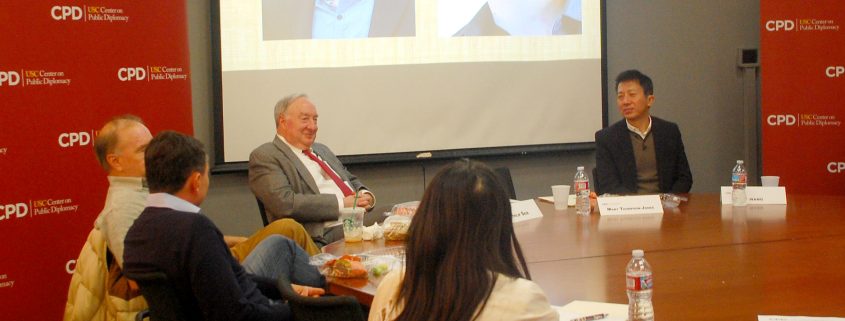Annenberg hosts discussion on the role of WikiLeaks in diplomacy
Mary Thompson-Jones, a former Foreign Service Officer in the U.S. Department of State, led a discussion on Wednesday at the Annenberg School of Communication and Journalism on what the embassy cables published by WikiLeaks reveal about public diplomacy.
According to Thompson-Jones, the 251,287 embassy cables that leaked in November 2010 revealed masses of secret information on under-the-table U.S. public diplomacy actions. This was the result of the efforts of WikiLeaks, a multi-national media organization founded in 2006. Classified cables were released to the public, revealing firsthand accounts of American diplomats.
The WikiLeaks reveal allowed the public to see diplomacy from the perspective of embassy officers writing to Washington, D.C.
Perhaps the scariest result of the cable leaks, according to Thompson-Jones, was the realization that policymakers were frequently misjudging and distorting public diplomacy inquiries. She said the leak revealed conflicting approaches from Washington, D.C. stakeholders who held a vested interest in their own agenda and saw little of the battles occurring on the ground. The cables revealed the deepening gulf growing between the government and field agents, according to Thompson-Jones.
She also explained that the ongoing foreign policy disconnect is rooted in poor long-distance communication. According to Thompson-Jones, officials in Washington, D.C. have been unwilling to listen to discourse outside Capitol Hill, which has caused a rift between politicians in Washington, D.C. and officers out in the field.
Mietek Boduszynski, an assistant professor of politics and international relations at Pomona College as well as a former diplomat, gave further insight to America’s foreign policy disconnect and praised Thompson-Jones’ latest book on the issue.
“I was looking for ways in my foreign policy class to explain to students what diplomats — especially American diplomats — do,” Boduszynski said. “The book will be a great resource and also raises great questions about communication in the diplomatic world.”
Thompson-Jones said that with President Donald Trump’s administration, the discussion on transparency is even more relevant.
“I am really concerned about the future of public diplomacy in the Trump administration,” Thompson-Jones said. “Public diplomacy has to be founded on truth. This is crucial for foreign audiences and some of the misstatements, the disregarding of factual information, makes me concerned that we will lose credibility with foreign audiences.”
Thompson-Jones explained that the release of the cables by WikiLeaks had no intent to harm and there was no proof that anyone was threatened by the leaked information, though some officers did lose their jobs. Instead, she said, the real harm came to the foreign service itself. The downside of WikiLeaks was the initial brush-off by Washington, D.C. to what the cables had to say about foreign policy and the state of America’s relationships with other countries. According to Thompson-Jones, there is a heavy price to pay for not paying attention.
Thompson-Jones highlighted the necessity of truth and communication between and among diplomats. Without truth in public diplomacy, the State Department would become impoverished, according to Thompson-Jones. It cannot lose its sense of curiosity for what happens in foreign parts, so America’s public diplomats must reconnect both in Washington, D.C. and the embassies, Thompson-Jones said.
“If we don’t have truth, then public diplomacy cannot exist,” Thompson-Jones said.
Maria Abou Atmi, a second year graduate student pursuing a master’s in public diplomacy, said she enjoyed having the chance to learn about a relevant topic from an expert in the field.
“It was great to hear from a former Foreign Service officer about the impact of WikiLeaks on public diplomacy and how important it is to have access to this information and how it affects the global-stage,” Atmi said.

